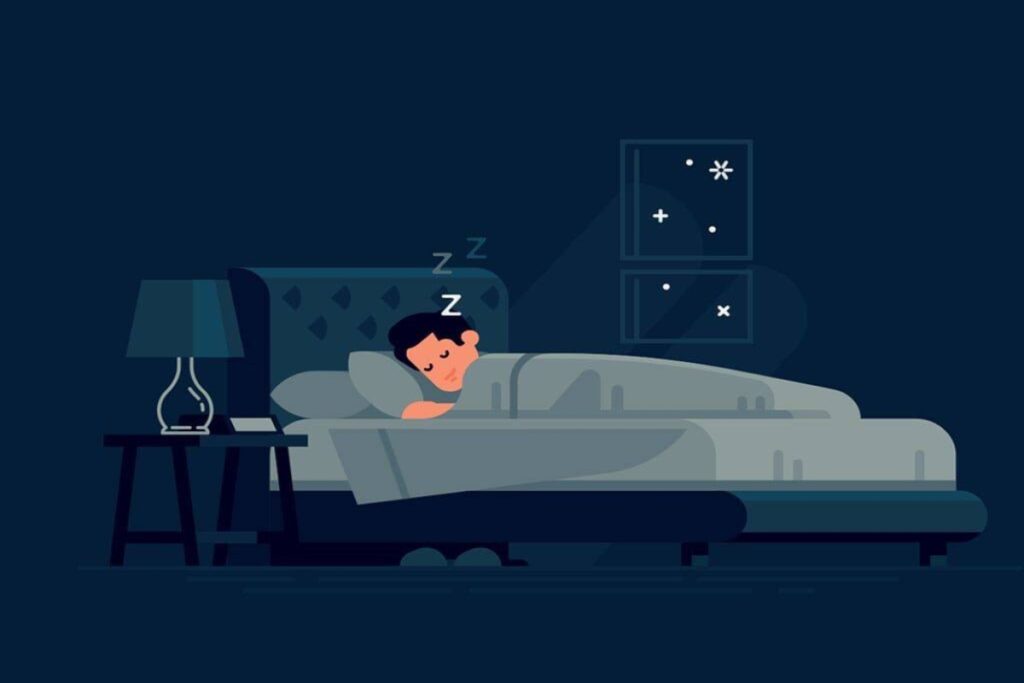We all know that getting a good amount of sleep every night is important for our overall health. It’s like giving our bodies and minds the rest they need to recharge and be at their best. Not sleeping enough can put you at a higher risk for some health issues like heart problems, diabetes, obesity, feeling down, memory troubles, and even cancer.
Sleep is important, but it’s also fascinating how everyone has their unique sleep patterns. Researchers from Pennsylvania State found that there are four different sleep patterns that people follow. These patterns can give us clues about our long-term health. It’s like our sleep habits can tell a story about our well-being.
Importance of Sleeping to Our Health
Dr. Soomi Lee, an associate professor at Pennsylvania State who led this study said something important. She mentioned that understanding how sleep impacts our overall health is really crucial. It helps us focus on sleep as something we can change and improve to prevent health issues in the future.

“Research, including our findings, consistently links poor sleep to a myriad of adverse health outcomes, ranging from heightened risks of depression, chronic pain, cardiovascular diseases, to cognitive decline,” Dr. Lee told Medical News Today.
“Sleep, being a fundamental daily behavior, holds significant potential, if we enhance our sleep patterns daily, the cumulative effect on our health cannot be underestimated,” Dr. Soomi Lee added.
A study published in 2017 showed that when our sleep is not accurate, it can have some serious negative effects on our health. And get this, these effects can happen both in the short-term and the long run.
Also, in July 2023, a study showed that adults who follow eight healthy habits, one of them being good sleep hygiene, can live an average of 23 to 24 years longer than those who don’t. It just goes to show how important it is to prioritize our sleep and take care of ourselves.
ALSO READ: Tips on How To Use Turmeric Milk for Cholesterol Management
Four Kinds of Sleep Patterns
In this study, Dr. Lee and her team looked at information from about 3,700 people who were part of the Midlife in the United States study. They got to see how these participants slept and any chronic health issues they had over 10 years.

Through this data, scientists were able to identify four different sleep patterns; Good sleepers, who have the best sleeping habits across all data points. Nappers who are mostly good sleepers, but take daytime naps frequently.
Weekend catch-up sleepers who have irregular sleep on weekdays and sleep longer on weekends and holidays. Insomnia sleepers who have sleeping issues such as taking a long time to fall asleep, short sleep durations, and increased tiredness during the day.
According to researchers, more than half of the people in the study were either struggling with insomnia or were big fans of napping.
“The prevalence of suboptimal sleep patterns, particularly insomnia sleepers or nappers, among the majority of participants was indeed surprising,” Dr. Lee said.
“Our study sample consisted primarily of healthy adults from the study, leading us to anticipate better sleep health patterns. However, the findings revealed a concerning prevalence of insomnia sleeper or napper patterns among participants, highlighting the importance of addressing sleep health even among ostensibly healthy populations,” she explained.
Increased Chronic Disease Risk for Insomnia Sleepers
The study researchers found something interesting. They saw that people who were classified as insomnia sleepers, the ones who had trouble sleeping, had a way higher chance of developing chronic health conditions. Like, we’re talking about stuff like cardiovascular disease, diabetes, and even depression.

“It’s important to note that the identification of the insomnia sleeper phenotype was based on self-reported sleep characteristics rather than clinical diagnosis,” Dr. Lee said.
“However, these characteristics closely align with clinical insomnia symptoms, including short sleep duration, high daytime tiredness, and prolonged sleep onset,” she continued.
Dr. Lee said this has several implications, “Firstly, individuals experiencing these symptoms should consult a healthcare professional for appropriate evaluation and treatment.”
“Secondly, our findings revealed that being an insomnia sleeper at any point over the 10 years significantly increased the likelihood of developing multiple chronic health conditions, with up to an 81% increase observed,” she detailed.
“Thirdly, insomnia sleepers exhibited a reduced likelihood of transitioning to other sleep patterns over the decade, suggesting a persistent challenge in returning to optimal sleep,” Dr. Lee continued. “Lastly, the study identified associations between insomnia sleeper patterns and socioeconomic factors such as lower education levels and unemployment,” she added.
Dr Lee Speaks About Creating Awareness About the Significance of Sleep Health
Dr. Lee said she wanted to take it even further. Her next steps are all about spreading the word and making people more aware of how important sleep health is. “With ample evidence linking better sleep health to positive health and aging outcomes, there’s a critical need for further exploration,” she said.
“Specifically, I aim to delve into the antecedents of sleep health, investigating factors that contribute to maintaining optimal sleep patterns despite age-related declines, she added.
“Understanding who maintains better sleep health and identifying protective factors against sleep disturbances will be central to shaping interventions aimed at promoting overall well-being,” she told Medical News Today.
ALSO READ: 8 Tips for Maintaining a Healthy Lifestyle
Moving Toward Possible Treatments for Sleep Issues
Medical News Today also spoke with Dr. Monique May, family physician, and Airflow Sleep Advisory Board member, about this study.
Dr. May gets it. When she heard about the study’s findings, especially regarding the insomnia sleepers, she was like, “That makes total sense.” It’s like our gut feeling telling us that if we have trouble sleeping, it could have some serious effects on our health.
“I would expect the insomnia sleepers to have an increased risk for chronic disease because they are not getting good, quality sleep, which is important in regulating metabolism and performing restorative activities,” she explained.
“However, I was surprised that the nappers had an increased risk for chronic disease because they were described as getting ‘mostly good sleep but frequent daytime naps.’ Napping, when done correctly, can be very beneficial, but according to this study, we may need to rethink napping recommendations,” she added.
Understanding how sleep impacts our overall health is key because it helps doctors provide better and more specific treatments for people dealing with sleep issues.
“Having evidence upon which to base lifestyle recommendations is key. For example, being able to identify what type of sleeper someone is at various points in their life will enable physicians (to) direct recommendations and treatment that will have (a) greater chance of being successful,” she said.
You Might Also Like:
Can Fruits and Vegetables Prescription Improve Health?
Birkin Handbag Maker, Hermes Faces Class Action Lawsuit
Josh Peck Speaks on “Quiet on Set” Documentary, Calls for Industry Change
Aaron Taylor Johnson Slams Hate Over Age Gap With Wife, Says It’s Bizarre
Shakira Says Having a Husband Dragged Her Down, Being Single Is Best for Career
